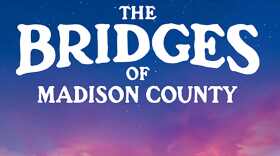Southwest Florida is so rich in wildlife habitat and has so many threatened and endangered species that the U.S. Fish and Wildlife Service wants to add the region to the world’s largest network of protected lands.
That would mean a fuzzy patchwork of farms and ranches in counties from Glades and Charlotte on the north to Collier on the south would be added to the National Wildlife Refuge System, which is 568 national wildlife refuges and 38 protected wetlands covering about 850 million acres.
The U.S. Fish and Wildlife Service considers adding new conservation areas when it identifies a geographic region with high-quality wildlife habitats remaining despite the development of homes and businesses, where migratory birds and threatened or endangered species still thrive.
Read: Southwest Florida and the Everglades.
“Designating this area for protection offers an exceptional opportunity to conserve and restore critical resources at the landscape level, providing a holistic, long-term solution to maintaining the health of the region’s waters and wildlife,” wrote the leaders of Growing Climate Solutions, a grassroots coalition of groups in the region committed to addressing the causes and impacts of climate change.

“The area under consideration in Southwest Florida, like many parts of Florida, is undergoing rapid development. These changes in land use threaten its ecological integrity. Climate change impacts are also weighing on natural systems, affecting habitats, water quality, and aquifer recharge.”
The Southwest Florida Fish and Wildlife Conservation Area would protect the habitat home to roughly 74 threatened and endangered species within the western Everglades and Fisheating Creek, as well as the watersheds of the Caloosahatchee, Peace, and Myakka rivers.
Southwest Florida is under consideration thanks to its ecological importance, decades of previously documented conservation science and planning in the area, and its track-record of responsive and engaged community groups and environmental nonprofits.
What’s helping even more, is the large number of landowners who are willing to give up certain rights so their parcels can be part of the very large conservation area.
However, the region’s environmentalists and wildlife lovers will have to be patient, not the least which is because the process often takes a decade or longer.
Also, the boundaries of the proposed Southwest Florida Fish and Wildlife Conservation Area will be fuzzy.
The whole region will not be included, although some acreage already is under conservation through other state and federal programs.
And then there are myriad financial concerns that have to be dealt with, such as how much the feds will compensate local governments for land taken off tax rolls as it turns into conservation corridors.
If all of that is figured out, and it’s a good bet it will be in time, the land would double as part of the Florida Wildlife Corridor, and hunting, fishing, and hiking enthusiasts will have previously off-limits parts of Southwest Florida to discover.
Environmental reporting for WGCU is funded in part by VoLo Foundation, a non-profit with a mission to accelerate change and global impact by supporting science-based climate solutions, enhancing education, and improving health.
Sign up for WGCU's monthly environmental newsletter, the Green Flash, today.
WGCU is your trusted source for news and information in Southwest Florida. We are a nonprofit public service, and your support is more critical than ever. Keep public media strong and donate now. Thank you.





